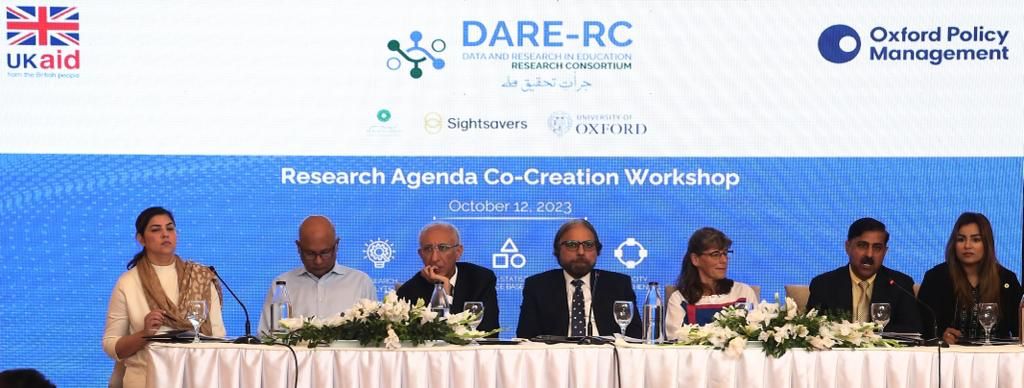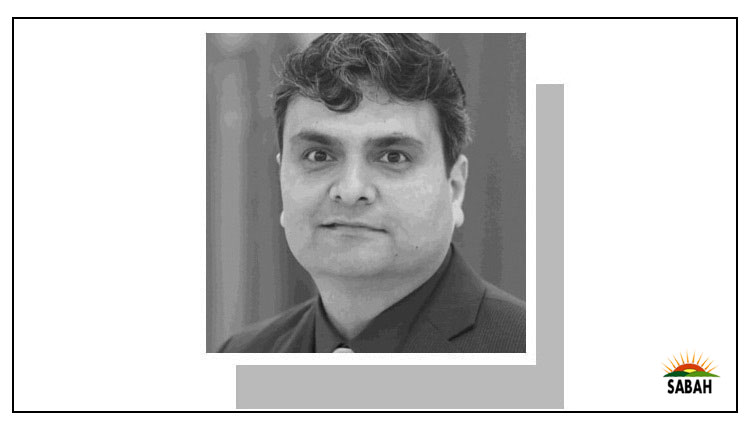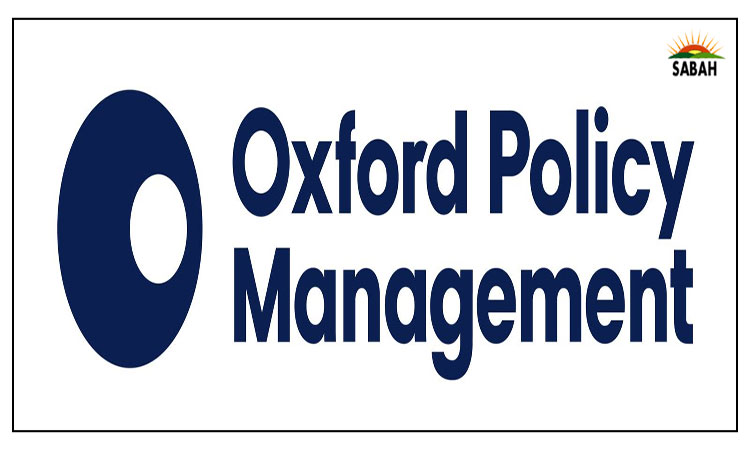Transforming research in education for informed policymaking in Pakistan: DARE-RC Charts Course
ISLAMABAD, Oct 13 (SABAH): Education is the cornerstone of progress, and in recognition of its paramount importance, Oxford Policy Management (OPM) Pakistan organized a one-day Research Agenda Co-Creation Workshop under the Data and Research in Education – Research Consortium (DARE-RC) program. This significant event, held at Marriott Islamabad, brought together a diverse array of participants, including public sector representatives at federal and provincial levels, national and international knowledge partners, civil society organizations, development partners, and academia.

The workshop aimed at setting the direction for the entire program through chalking out the contours of the research agenda with a focus on learners, learning environment, and the overall education landscape in Pakistan. The research agenda will serve as a roadmap to prioritize and define the areas in which rigorous and impactful research will be conducted as part of the DARE-RC initiative.
The discussants included Waseem Ajmal Chaudhry, Secretary, Ministry of Federal Education and Professional training (MoFEPT); Abdur Rauf Khan Gandapur, Country Director at OPM Pakistan; Haris Khalique, Program Director, DARE-RC; Muhammad Zaigham Qadeer, Research Director at Pakistan Institute of Education (PIE); Kim Bradford Smith, Education Team Lead, Foreign, Commonwealth & Development Office (FCDO); Dr Jamila Razzaq, Research Director, DARE-RC; Dr Dilshad Ashraf, Deputy Research Director, DARE-RC; and Anza Saqib, Consultant Media and Research Education Parliamentarians’ caucus, Senate of Pakistan. The session was addressed as Chief of Guest by Madad Ali Sindhi, Federal Minister, MoFEPT.
In his opening remarks, Abdur Rauf Khan highlighted the role DARE-RC is going to play in shaping the education landscape. He was of the view that DARE-RC is committed to promoting data-driven education policy that is rooted in comprehensive research as the program places a strong emphasis on strengthening the research capacities of local academic institutions and think-tanks, enabling them to actively contribute to the educational transformation of the nation.
In his address as the Guest of Honour, Waseem Ajmal emphasized the foundational challenges in the education sector and the crucial role of researchers and relevant expertise in translating learning objectives into effective teaching materials. He also pointed out the pressing need for comprehensive data to address the multifaceted issues being faced in the education sector. He hoped DARE-RC would be able to connect researchers across Pakistan and work collaboratively with government and policy actors too ensure the research aligns with real-world needs and priorities.
The Federal Minister for Education welcomed the efforts of the NGOs and the civil society in raising the pertinent issues related to the sorry state of education affairs in the country. He rued the indifference shown by political parties towards ensuring that children, especially from the marginalized community in the country, have access to quality education.
Transparency, accountability, and accessibility were recurring themes during the workshop. It was emphasized by the participants that research findings must be made publicly available, as transparency is crucial for holding the government and implementers accountable and for driving improvements in education service delivery. It was also stressed that the research produced under the DARE program should be easily understood and applicable by non-academic audiences, including policymakers and the public.
During the group activities, the participants identified several gaps in the existing data vis-à-vis education. They believed reliable and timely data is missing to address educational woes in the country. They also shed light on the digital divide hindering education expansion and highlighted the intersectionality of gender, climate, and education in the face of climate vagaries and disasters.
The DARE-RC program, championed by OPM and funded by the FCDO, has a mission to forge a comprehensive and accessible body of evidence pertaining to pivotal issues within the education service delivery framework of Pakistan. These issues encompass enabling greater access to education for girls, nurturing an environment for prolonged and improved learning, enhancing teaching quality, fostering accountability, reaching out to marginalized girls and boys, and leveraging technology to enrich the educational experience.












